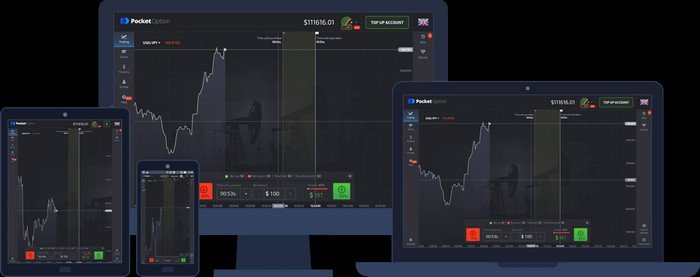
Pocket Option Fees: Understanding the Cost of Trading
When it comes to trading, understanding the fees that platforms charge is crucial for managing your overall trading expenses. In this article, we will delve into the details of Pocket Option Fees gebühren Pocket Option and how they can impact your trading experience.
Overview of Pocket Option
Pocket Option is a popular trading platform that offers a variety of financial instruments, including forex, cryptocurrencies, commodities, and stocks. With a user-friendly interface and various features such as demo accounts and social trading, Pocket Option appeals to both novice and experienced traders. However, like any trading platform, it is essential to understand the fees involved before getting started.
Types of Fees Associated with Pocket Option
Pocket Option incurs several fees that traders should be aware of:
1. Deposit Fees
Depending on the payment method you choose to fund your account, Pocket Option may charge different deposit fees. Most common methods such as credit cards and e-wallets typically have minimal to no fees. However, bank transfers might incur some charges, depending on the bank’s policies. It is advisable to check the deposit options available on the platform to determine which method suits you best in terms of fees.
2. Withdrawal Fees
Withdrawal fees are another critical aspect. Pocket Option may charge a fee for processing withdrawals, which varies based on the payment method selected. E-wallets usually have lower fees compared to bank transfers. Traders should be mindful of these charges as they can eat into your profits. Additionally, it is essential to check the minimum withdrawal limits as well.
3. Trading Fees
Pocket Option operates on a commission basis, meaning that traders are charged a small percentage of the trade’s value. This fee can vary depending on the asset you are trading and market conditions. Understanding the trading fees associated with each asset is vital to ensure that you maximize your trading profitability.

4. Overnight Fees
For traders who hold positions overnight, it’s essential to be aware of overnight fees, also known as swap fees. These fees are charged for holding a position after the market closes and can vary based on the asset and market rates. It is recommended to check the specific terms related to overnight fees on Pocket Option.
How to Minimize Fees
While fees are an unavoidable part of trading, there are strategies to minimize them. Here are some tips:
1. Choose the Right Payment Method
Opt for payment methods with lower fees for deposits and withdrawals. E-wallets like Skrill or Neteller often have fewer charges compared to bank transfers.
2. Be Aware of Promotions
Pocket Option occasionally offers promotional campaigns, including fee waivers for deposits and withdrawals. Staying updated on these promotions can help you save money.
3. Plan Your Trades Wisely
Consider holding trades for a shorter duration to avoid overnight fees if applicable. Analyze your trading strategy to determine if longer holds are necessary.
Conclusion
Understanding Pocket Option fees is essential for any trader looking to maximize their profits and minimize costs. By being aware of deposit, withdrawal, trading, and overnight fees, along with strategies to minimize these costs, you can make more informed decisions. As always, ensure that you read the terms and conditions associated with any financial transaction on the platform to avoid unexpected charges.
Remember that while fees are an integral part of trading, effective management and strategic planning can significantly enhance your trading experience.
